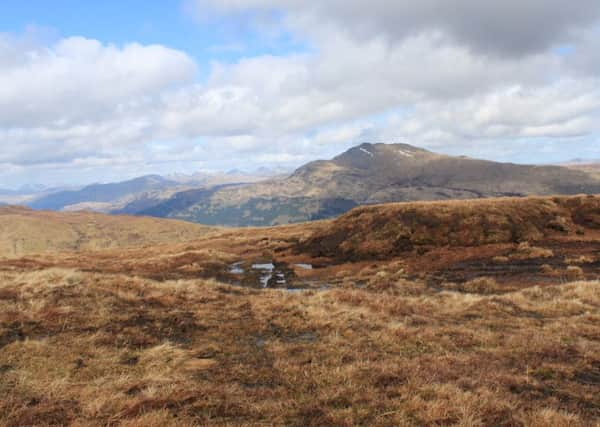Effects of climate change threaten fight against warming


The ability of peatlands to remove greenhouse gases from the atmosphere could be severely reduced as climate change causes sea levels to rise, new research has found.
A pioneering study carried out in the Scottish Highlands has revealed that salt in seawater hampers how well bogs can soak up carbon dioxide.
Advertisement
Hide AdAdvertisement
Hide AdThe findings could have important implications for the fight against global warming, which experts have agreed should be limited to avoid “dangerous” environmental consequences.
Geographers at the University of Exeter studied an area of blanket bog – which forms in cool regions susceptible to high rainfall – at Kentra Moss, near Acharacle in Argyll.
Analysis showed the rate at which peat can accumulate carbon falls dramatically as the concentration of salt gets stronger.
Rain-fed peatlands are recognised as globally important environmental resource because of their ability to absorb and store carbon.
But rising sea levels, a predicted consequence of climate change, would inundate ever-larger areas and deposit salt further inland.
This means the future potential for peatlands to absorb man-made emissions and slow the rate of warming could be significantly reduced.
“Peatland areas play a crucial role in taking carbon from our atmosphere and storing it,” said Dr Angela Gallego-Sala, a senior lecturer at the university who collaborated on the study. We know that rising sea levels through global warming can have catastrophic effects on many areas across the globe, and this study shows just how vulnerable some peatland areas are to the same phenomenon.
“The effects of global warming are already being observed, but the longer we wait to act the quicker changes to our environment, which would have a devastating impact on many regions around the world, will take place.”
Advertisement
Hide AdAdvertisement
Hide AdCo-researcher Alex Whittle added: “This study highlights the global scale and geographical distribution of peatlands potentially vulnerable to sea-level change. We hope our work will increase awareness of this risk and thereby stimulate future research on this topic.”